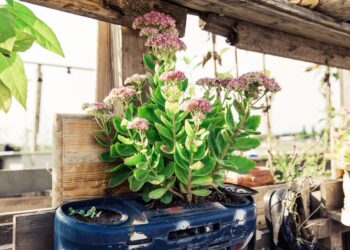Green Gardens: Cultivating a Sustainable Future Through Eco-Friendly Gardening
Green gardens play a crucial role in promoting sustainability and environmental conservation. As the world grapples with the challenges of climate change and dwindling natural resources, eco-friendly gardening practices have emerged as a viable solution to mitigate these pressing issues. By adopting sustainable gardening techniques, individuals can contribute to a greener and healthier planet while creating beautiful and vibrant outdoor spaces.
The Importance of Eco-Friendly Gardening
Traditional gardening practices often rely on chemical fertilizers, pesticides, and herbicides that can harm the environment and human health. These synthetic inputs can leach into the soil, contaminate water sources, and disrupt the delicate balance of ecosystems. In contrast, eco-friendly gardening emphasizes natural and organic methods that promote biodiversity, conserve resources, and reduce the carbon footprint.
Benefits of Eco-Friendly Gardening
1. Conservation of Water: Eco-friendly gardening techniques such as rainwater harvesting, mulching, and drip irrigation help conserve water and reduce water wastage.
2. Soil Health: By avoiding synthetic chemicals and promoting organic matter, eco-friendly gardening practices improve soil structure, fertility, and microbial activity.
3. Biodiversity: Planting native species, creating wildlife habitats, and avoiding monocultures support biodiversity and contribute to a healthy ecosystem.
4. Carbon Sequestration: Trees, shrubs, and other plants in green gardens absorb carbon dioxide from the atmosphere and help mitigate climate change.
Tips for Creating a Green Garden
1. Choose Native Plants: Native plants are well-adapted to the local climate and soil conditions, requiring less water, fertilizer, and maintenance.
2. Compost: Start a compost bin to recycle organic waste into nutrient-rich soil amendment for your garden.
3. Avoid Chemicals: Use natural pest control methods such as companion planting, handpicking, and biological controls to manage pests and diseases.
4. Conserve Water: Install a rain barrel, use drip irrigation, and mulch your garden beds to reduce water consumption.
Common Questions About Green Gardens
1. Can I Still Have a Beautiful Garden Without Chemicals?
Absolutely! Eco-friendly gardening can create stunning and vibrant outdoor spaces without the need for synthetic chemicals. By incorporating native plants, organic fertilizers, and natural pest control methods, you can achieve a lush and healthy garden that is safe for the environment and wildlife.
2. How Can I Attract Pollinators to My Garden?
Planting a diverse array of flowering plants, including native species, will attract pollinators such as bees, butterflies, and hummingbirds to your garden. Avoiding pesticides and providing shelter and nesting sites will also encourage pollinators to visit and thrive in your green space.
3. What Is the Best Way to Start Composting?
Starting a compost bin is easy and rewarding. Begin by collecting kitchen scraps such as fruit and vegetable peelings, coffee grounds, and eggshells. Layer these materials with brown materials like leaves, straw, and newspaper to create a balanced mix of nitrogen and carbon. Turn the compost regularly to aerate it and speed up the decomposition process.
Conclusion
Green gardens offer a sustainable and eco-friendly approach to gardening that benefits the environment, wildlife, and human health. By adopting organic practices, conserving resources, and promoting biodiversity, individuals can cultivate a beautiful and resilient outdoor space while contributing to a greener future for all. Embrace the principles of eco-friendly gardening in your own backyard and be a part of the growing movement towards sustainability and conservation.























































